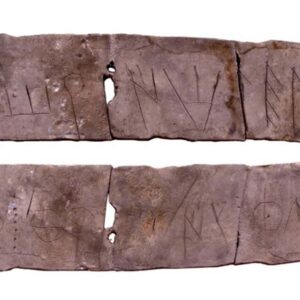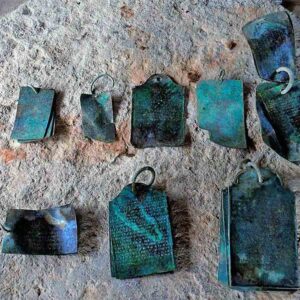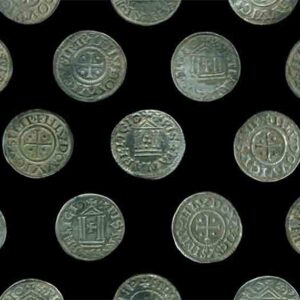Up to date
11 September, 2023 – 23:00
Sahir
Saxon Palace in Warsaw Comprises a Secret 45-Meter-Lengthy Tunnel Beneath Its Ruins!
- Learn Later
Tragically destroyed throughout the Nazi offensive in World Struggle II, the seventeenth century Saxon Palace in Warsaw is a outstanding historic web site. Archaeological work being carried out on the web site and its remnants have revealed the presence of a mysterious 45-meter (147.6 ft) lengthy tunnel below the ruins of the outdated palace, which is a whopping 4 meters (13.1 ft) deep! The tunnel has been described as “probably the most mysterious place on Piłsudski Sq. in Warsaw”.
A Full Shock: A Secret Navy Passageway
Pałac Saski firm spokesman Sławomir Kuliński defined to Science in Poland (PAP), that the tunnel just isn’t on any configuration or architectural plans that they had, and is thus a whole shock. In superb situation, he speculates that it was in all probability constructed within the early Thirties for the aim of navy intelligence. Digging by way of the rubble filling the passageway, they discovered cash, ornaments and pottery items.
- Sacrificial Treasure Trove of Bronze Age Artifacts Present in Peat Bathroom
- 1,000-Yr-Outdated Chamber Burial on Polish Island Reveals Uncommon Treasures
“The place the place we at the moment are was the Polish Military command, and navy intelligence was positioned within the southern wing. The tunnel was imagined to allow them to shortly switch studies and knowledge. The tunnel additionally had technical capabilities. It contained a telegraph cable and a system of heating and irrigation pipes for each wings of the palace,” defined Kuliński.
The tunnel’s bricks had been sourced from the Wawrzyna brickyard, as indicated by the branded marks on the bricks. Moreover, on the just lately utilized plaster, an unidentified builder etched the yr 1933 together with an eagle, sans its crown.
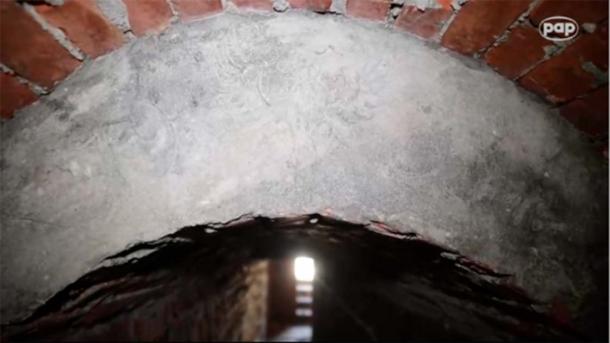
The yr 1933 was carved onto newly utilized plaster. A screenshot of the video. (Science in Poland)
The tunnel extends to the cellars relationship again to the Morshtyn interval inside the southern part of Saxon Palace. These cellars initially served as storerooms, and throughout the interwar interval, they performed an important position, as messengers raced to ship navy intelligence studies to the generals, studies Arkeonews. The tunnels had been fitted with a telegraph cable, heating system, and water pipes.
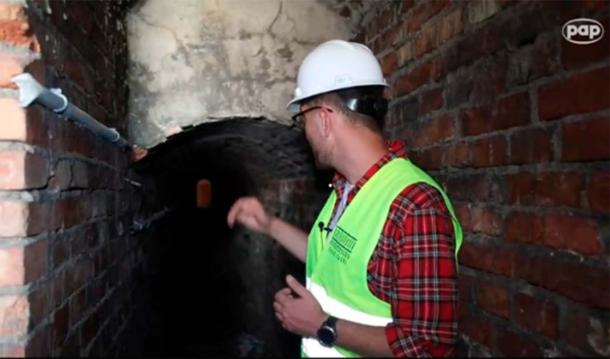
A screenshot from the Science in Poland video, displaying a view of the tunnel. (Science in Poland)
The Saxon Palace: A Historical past of Diversified Capabilities and Regime Modifications
In keeping with the State Archives in Warsaw, the origins of the Saxon Palace date again to the 1660s, when it was initially constructed as a personal residence for Stanisław Herakliusz Lubomirski, a Polish nobleman. Nonetheless, it did not turn out to be a royal residence till the 1720s.
Over the course of the 1700s, the constructing underwent expansions and variations to accommodate numerous capabilities, although it was famously famend for its Baroque-style structure, characterised by ornate decorations and a grand façade.
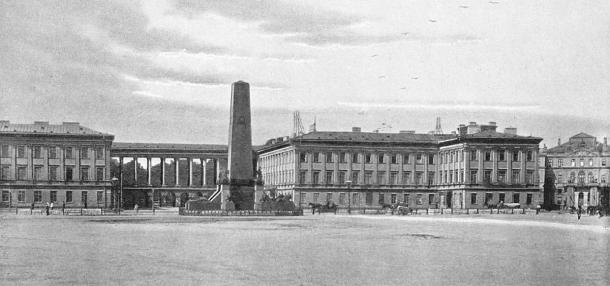
The Saxon Palace of Warsaw, 1841-1894, earlier than it was destroyed by German forces in World Struggle II. (Public domain)
Within the 18th century, the palace was bought by the Saxon Elector Augustus II the Sturdy, who used it as his royal residence in Warsaw. It was throughout this time that the palace grew to become related to the Saxon title. All through its storied historical past, the palace has served because the quarters for Polish navy workers, housed a overseas affairs ministry, hosted eating places and retailers, and at one level, even functioned as a highschool within the early 1800s, as reported by Radio Poland.
It briefly served because the headquarters of the Russian Imperial Military within the first half of the nineteenth century. Tragically, the Saxon Palace met its demise throughout World Struggle II when Nazi German forces, occupying Poland on the time, intentionally destroyed the constructing in 1944, shortly after the Warsaw Rebellion motion’s try and overthrow the occupation had failed, as acknowledged in data from the state archives.
After the demolition of Brühl’s Palace throughout the 1944 destruction of Warsaw, the world surrounding it was cleared solely all the way down to floor stage within the aftermath of World Struggle II. The remaining rubble was flattened, and the location was remodeled right into a garden, step by step changing into overgrown with bushes and shrubs. For almost eight many years, the vast majority of this space held a thriller, apart from a small fragment of one of many annexes (going through the Saxon Backyard), which was explored by archaeologists in 2006, studies The Miami Herald.
- 7,000-Yr-Outdated Ritual Website Unearthed in Poland
- A Polish Stonehenge? Discovery of New Burial Mounds Might Rewrite Historical past
In early June 2023, efforts started to unveil the secrets and techniques hidden beneath this area. The world was initially cordoned off and thoroughly inspected by sappers to make sure the absence of unexploded ordnance.
Archaeologists are presently conducting excavations on the web site, unearthing a outstanding array of artifacts, together with cash, ornaments, medallions, and vessels adorned with decorations or bearing producer’s signatures. To this point, they’ve uncovered almost 46,000 such gadgets! The deliberate timeline for the restoration and re-commissioning of Brühl Palace, the Saxon Palace buildings, and neighboring tenement homes is about for the yr 2030.
High picture: Archaeologists have uncovered a mysterious 45-Meter tunnel below the seventeenth Century Saxon Palace in Warsaw. Screenshot from Science in Poland’s video. Supply: Science in Poland
By Sahir Pandey
References
Altuntas, L. 2023. In Poland, a 45-meter-long mysterious tunnel discovered below the ruins of the Saxon Palace. Accessible at: https://arkeonews.net/in-poland-a-45-meter-long-mysterious-tunnel-found-under-the-ruins-of-the-saxon-palace/.
Gorcyzca, A. 2023. Mysterious tunnel discovered below Saxon Palace ruins. Accessible at: https://scienceinpoland.pl/en/news/news%2C97928%2Cmysterious-tunnel-found-under-saxon-palace-ruins.html.
Pflughoeft, A. 2023. Secret tunnel — with key function — uncovered beneath palace ruins in Poland. See it. Accessible at: https://www.miamiherald.com/news/nation-world/world/article278317033.html.


